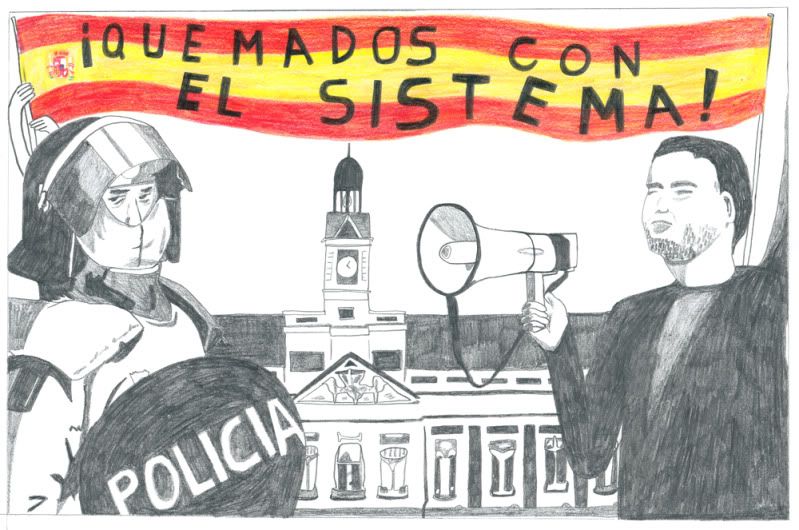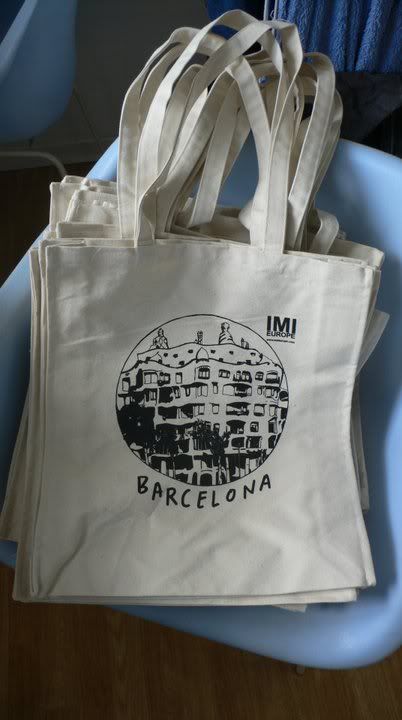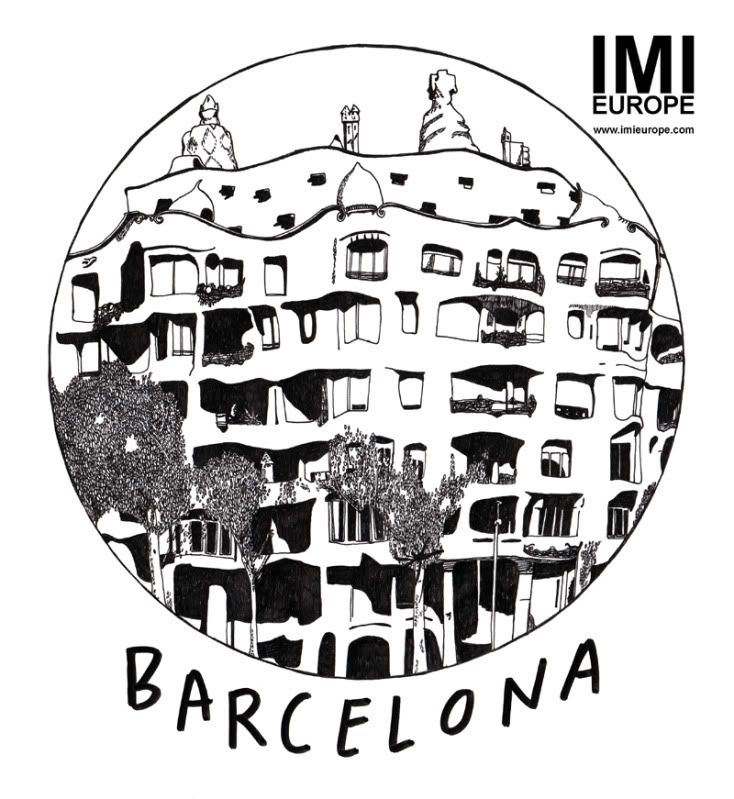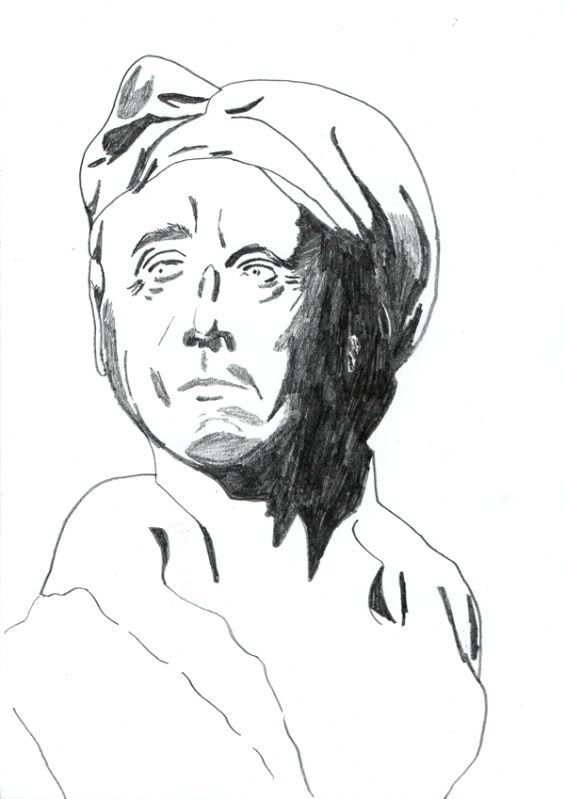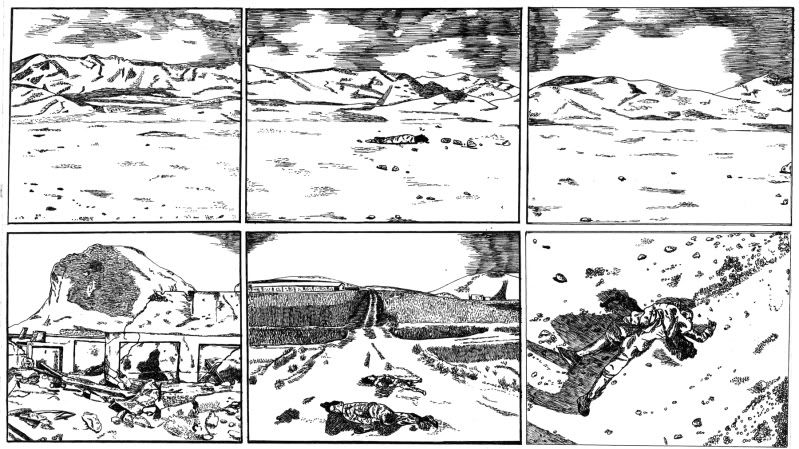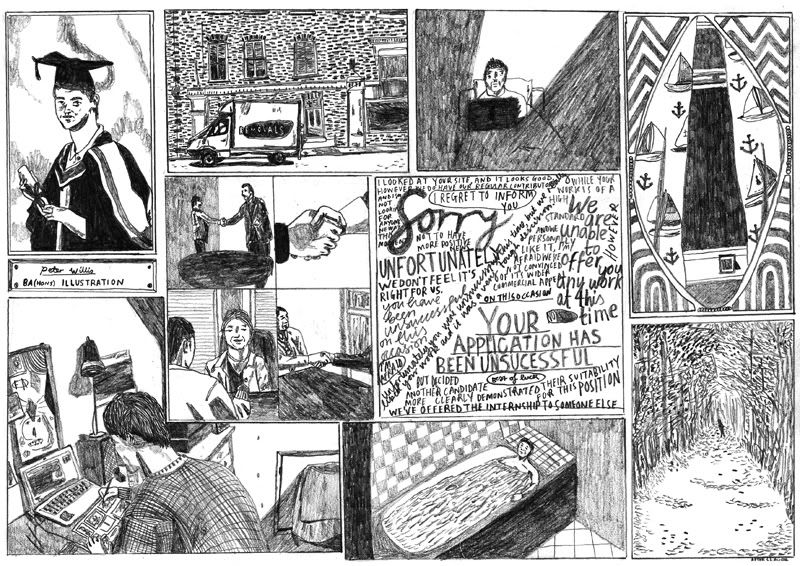
The first post you can read here, and talks about working for free - and I pretty much agree with everything it says and will mention this in a bit more detail later, but the second post seemed to resonate a bit more, particularly the role that Illustration degrees have in preparing students for their futures outside of college.
When I first read the post, which you can read here - and dip below the comments line too for some discussion - I pretty much agreed entirely. I graduated last july with a 2:1 from Camberwell, and while we did have a specific workshop on professional portfolio's with people from the AOI and other q & a things with the tutors who were regularly working illustrators, the sessions that had been organised to talk us through things like setting ourselves up as self-employed, etc - the technicalities of life as an illustrator, were postponed and never re-scheduled which I think definitely left us a bit in the lurch. But I hope this was just unlucky for our particular year, and the fact those sessions are offered is great.
What made me question the post though, was this idea that the courses role was to prepare students for a professional life when they leave. The drastic changes that are affecting the way higher education is being organised through the 80% cut to the teaching grant for arts and humanities courses and the changes to student loan repayments is indicative of a shift away from the idea of education for the sake of education to a more career-centered learning experience. The entire argument against the rise in tuition fees wasn't simply "it's too much debt", but against the idea that universities are solely steps on the ladder to a better career. Of course there should be elements to the course that help to prepare you for life post-university but I personally think colleges are striking the right balance between that and providing a space for you to focus solely on the work you are producing. You are far less likely to land good jobs if you're work isn't up to it's highest standard.
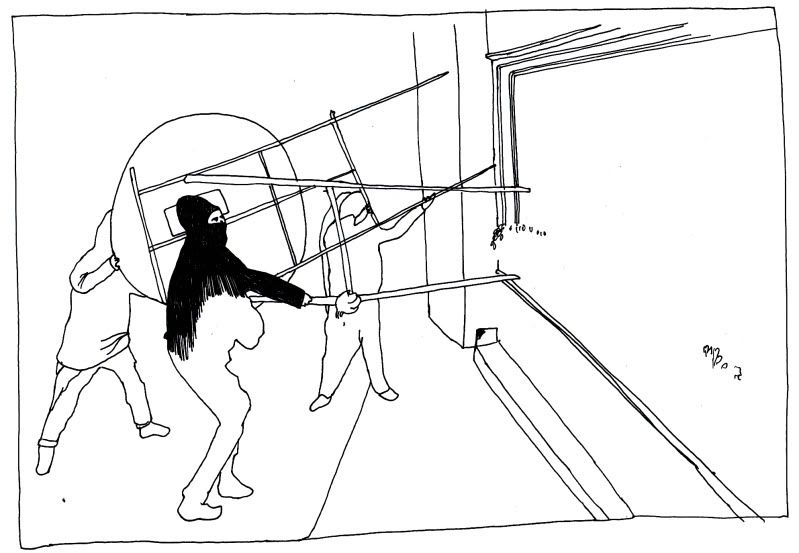
I'm sure some people start illustration courses with the sole view of becoming an illustrator, but a whole load don't - myself included. Infact I ended up at university precisely because I didn't want to get a job. I went into an art foundation course doing photography and grateful for the chance to not think about real life for one more year, and came out the other end applying for illustration and graphic design degrees. People I graduated with are now working as graphic designers, art directors and prop makers, making music videos, etc - had our degree been focused towards becoming a professional illustrator rather than fostering their creativity and allowing them to pursue their interests then they would've had not only a much less successful time at school but a downright shit one.
My point is that the three years of university are about developing your work to the its conceptual and technical best, and that that should always be the priority. Without that there is no chance at all of doing well in a creative career.
It's become the norm in the 'creative industries' that you have to work for free in some capacity as a graduate - be it through an internship or for the type of websites and publications Holly mentions on her blog. This is part of a much wider trend of precarious and temporary contract labour that is starting to spread to virtually every other industry, and to which there is a growing backlash - but for illustration this is the norm, and really the recession has done little to change how the industry operates. It's always been pretty bad in terms of getting work, getting paid and being valued - shit the standard day-rate hasn't changed in over a decade. Unlike graphic design or other creative degrees, you can't really walk out of university into an agency or company, much less do work experience as Amelia suggests in the comments to Hollys blog. Unpaid internships I'm sure are a valuable way of making contacts in the industry but operate in the same way internships in other industries do in pricing out those who can't afford to work for free and putting them at a disadvantage. Illustration and the 'creative industries' in general are pretty bourgeois affairs as anyone who's been to art school can attest, but that doesn't mean we have to just take it. Illustration is a career that takes as a given 2 years at least of unpaid or not-enough work before you can sustain yourself, those who can't be subsidised for that period will and do find it very hard indeed.

Of course it all depends what course you do at what university. Someone has commented on Hollys blog that at Falmouth they are extremely pro-active in regards to teaching you about working with art directors and seeking out work. I naturally can only comment on my experience at Camberwell, on a course that encouraged a broadminded approach to 'illustration' in it's various guises to, I think, the benefit of the work we were making when we left.
Another point I disagree on is the idea that other skills should be taught with illustration to make you more lucrative to the job market post-uni. I chose to study illustration at Camberwell because it's the only remaining course at a UAL college that is exclusively illustration, rather than a pathway on a graphic design degree. Graphic design and illustration are two different disciplines, different industries and require very different teaching. I don't like it when employers have assumed I can put together adverts in InDesign or design logos because I have an illustration degree, and equally I resent when 'illustration' becomes an additional, secondary skill on the CVs of graduate designers. I love illustration, and believe in it's value as a thing that exists in the world, and therefore I want to see it continue as valuable in it's own right, and the people who invest the time and energy to pursue it with some seriousness are paid for their labour.
I want to make that point clear - I think unpaid internships are bullshit, and that if you do work for someone you should be paid for it. I do unpaid work because I love drawing, and mostly it's for people I know and money isn't an issue - they don't make it and I don't ask for it. When the culture in the industry is to exploit desperate graduates in a competitive 'marketplace' into giving their labour for free in the hopes of it paying off later then that needs to be addressed. Maybe this is what universities are failing at, and that is the fertile ground where an organised resistance to these practices should be built from.
p.s - the images in this post are from the top 1) my comic for 'Graduating into Unemployment' zine, edited by Sarah Tea-Rex, 2) drawing of black bloc smashing up the Ritz on the TUC demo and 3) sketch for poster demanding interns join the strike on June 30th.
